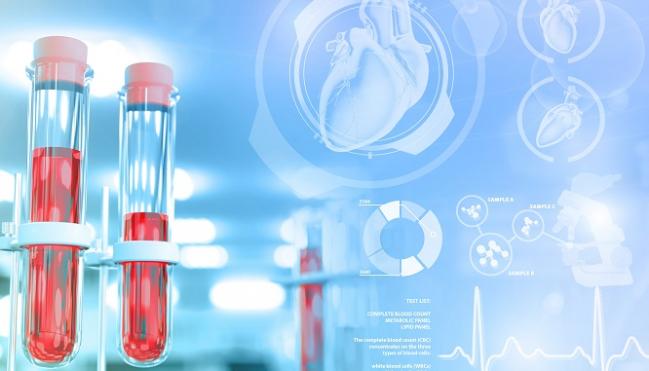Troponin Testing in COVID-19: New Review Offers a Framework for Use
When measured at presentation, cardiac troponin levels can be used to risk-stratify infected patients, says Allan Jaffe.

When used with the understanding that not all elevations are indicative of myocardial infarction, cardiac troponin testing can play an important role as the medical community responds to the ongoing COVID-19 crisis.
That’s the message from a review by Yader Sandoval, MD, and Allan Jaffe, MD (both Mayo Clinic, Rochester, MN), along with James Januzzi Jr, MD (Massachusetts General Hospital, Boston).
“Myocardial injury is quite common in patients with COVID. It should not necessarily lead people to think that this is always a heart attack, but there is very good information if one knows how to think about and how to use it and has it in the right sort of context, and that’s what we tried to give people in our review, a context to interpret these values and then use them to their benefit,” Jaffe told TCTMD.

Evidence accumulated during the pandemic indicates that troponin increases indicative of myocardial injury are frequently found in patients with COVID-19, particularly in those with severe disease and chronic cardiovascular conditions, and that they are associated with worse outcomes. A recent study out of New York City, for example, showed that about one-third of patients hospitalized with COVID-19 had some degree of myocardial injury and that these patients were more likely to die compared with those who didn’t have troponin elevations. That’s concordant with earlier data from China.
But looking at the field, Jaffe said, “it was clear that people were struggling with this and needed some sort of conceptual framework [around troponin testing], and that conceptual framework is what we tried to provide.”
The review, published online July 8, 2020, ahead of print in the Journal of the American College of Cardiology, describes the three main categories in which troponin elevations can be placed—chronic myocardial injury, acute nonischemic myocardial injury, and acute MI (type 1 or 2)—and details the variety of potential causes.
“The increased inflammatory, prothrombotic, and procoagulant responses following SARS-CoV-2 infection increase the risk for acute nonischemic myocardial injury and acute myocardial infarction, particularly type 2 myocardial infarction because of respiratory failure with hypoxia and hemodynamic instability in critically ill patients,” the authors write. “Myocarditis, stress cardiomyopathy, acute heart failure, and direct injury from SARS-CoV-2 are important etiologies, but primary noncardiac conditions such as pulmonary embolism, critical illness, and sepsis probably cause more of the myocardial injury.”
They then lay out how troponin testing can be used in the evaluation of patients with COVID-19. To start, an initial troponin level can give clinicians an idea about the risk level of a given patient. “Right from the get-go, you can use troponin as a way of telling you, on a statistical basis at least, that the trajectory of the patient that is in front of you, if the troponin is elevated, is very likely going to be more adverse than the person who doesn’t have an elevated troponin,” Jaffe explained.
What it does is it gives you a way of saying, ‘Something bad is happening to my patient,’ but it will not tell you in most instances exactly what that is. Allan Jaffe
The changes in troponin seen on serial testing can then provide even more prognostic information, he said, noting that the results should be considered in the context of other biomarkers to guide management. “What it does is it gives you a way of saying, ‘Something bad is happening to my patient,’ but it will not tell you in most instances exactly what that is,” Jaff said. “It then becomes incumbent on the clinician to proceed and figure out what the problem is to define the therapy that is needed.”
In addition, monitoring troponin levels can help clinicians decide when additional evaluations, like imaging, are worth the risk in the setting of COVID-19. “One of the things we suggested clinicians consider is looking at the troponins, and if one had a sense that something was going on clinically and the troponins were changing, that might be what would push you to go through the complex situation of doing some imaging studies, whether it’s echo or MRI or even cardiac catheterization,” Jaffe said.
Asked whether every COVID-19 patient should have their troponin measured, Jaffe said, “Our advocacy was that it would be helpful to do that, that if you did that you would get some very important risk-stratifying information right at the start that would help you, and that if you monitored it as you went along it would identify those people who were really getting into trouble.”
Taking a broader view of the situation, Jaffe said the pandemic has presented an opportunity to reinforce a message that he and others have been trying disseminate for years—that not all troponin elevations are indicative of MI but they still carry prognostic information. “That’s an important subtext and I think in a funny sort of way, the problem of COVID, which none of us like, is going to actually end up helping the field understand that as an important precept.”
Todd Neale is the Associate News Editor for TCTMD and a Senior Medical Journalist. He got his start in journalism at …
Read Full BioSources
Sandoval Y, Januzzi JL Jr, Jaffe AS. Cardiac troponin for the diagnosis and risk-stratification of myocardial injury in COVID-19: JACC review topic of the week. J Am Coll Cardiol. 2020;Epub ahead of print.
Disclosures
- Sandoval reports having served on advisory boards for Roche Diagnostics and Abbott Diagnostics without personal compensation and having been a speaker without personal financial compensation for Abbott Diagnostics.
- Januzzi reports being a trustee of the American College of Cardiology; having received grant support from Novartis Pharmaceuticals and Abbott Diagnostics; having received consulting income from Abbott Diagnostics, Janssen, MyoKardia, Novartis, and Roche Diagnostics; and participating in clinical endpoint committees/data safety monitoring boards for Abbott, AbbVie, Amgen, Bayer, CVRx, Janssen, and Takeda.
- Jaffe reports having consulted or presently consulting for most of the major diagnostics companies, including Beckman, Abbott, Siemens, ET Healthcare, Roche, Quidel, Sphingotec, Brava, Blade, and Novartis.


Comments